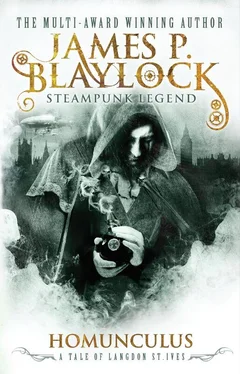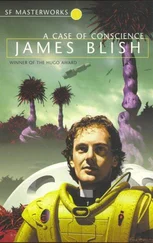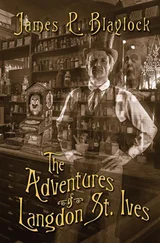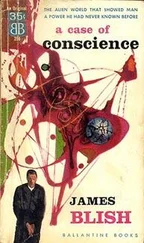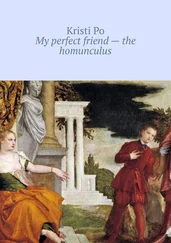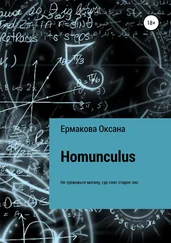James Blaylock - Homunculus
Здесь есть возможность читать онлайн «James Blaylock - Homunculus» весь текст электронной книги совершенно бесплатно (целиком полную версию без сокращений). В некоторых случаях можно слушать аудио, скачать через торрент в формате fb2 и присутствует краткое содержание. Жанр: sf_stimpank, на английском языке. Описание произведения, (предисловие) а так же отзывы посетителей доступны на портале библиотеки ЛибКат.
- Название:Homunculus
- Автор:
- Жанр:
- Год:неизвестен
- ISBN:нет данных
- Рейтинг книги:5 / 5. Голосов: 1
-
Избранное:Добавить в избранное
- Отзывы:
-
Ваша оценка:
- 100
- 1
- 2
- 3
- 4
- 5
Homunculus: краткое содержание, описание и аннотация
Предлагаем к чтению аннотацию, описание, краткое содержание или предисловие (зависит от того, что написал сам автор книги «Homunculus»). Если вы не нашли необходимую информацию о книге — напишите в комментариях, мы постараемся отыскать её.
Homunculus — читать онлайн бесплатно полную книгу (весь текст) целиком
Ниже представлен текст книги, разбитый по страницам. Система сохранения места последней прочитанной страницы, позволяет с удобством читать онлайн бесплатно книгу «Homunculus», без необходимости каждый раз заново искать на чём Вы остановились. Поставьте закладку, и сможете в любой момент перейти на страницу, на которой закончили чтение.
Интервал:
Закладка:
“Good day to you,” said Dorothy.
“You’ll see me again,” cried Pule at her back. “And so will your father.” She walked on more quickly, not taking the bait.
“Wait until I’ve played my hand!” Pule yelled. And then he caught himself. He gasped for air and leaned against the brick of a row house. It would do no good to lose his temper now. He would wait. In time — soon — she would see reason. He glanced at a dark window. The sight of his face reflected in it didn’t compose him. His hair was awry, and his mouth, normally sensitive and aloof, was contorted in a rictus of loathing. He made a conscious effort to relax, but his face seemed to have frozen in the grip of a maniacal passion.
A scrawny, half-hairless cat wandered out just then from under a fence. Pule stared at it, hating it. He snatched the cat up by the neck and held it kicking at arm’s length. He sloughed off his jacket, letting it fall down his right arm to envelop the struggling beast, then shoved the burden under his arm and strode away in the direction of Narbondo’s cabinet, visions of the cat dismembered flickering across his mind like etchings on a copper plate.
St. Ives let himself in through the front door of the Bertasso Hotel on Belgrave and tramped up two flights of carpeted steps to his room. The red wallpaper, rampant with stylized fleurs-de-lis, almost made his hair stand on end. He despised the current fashion in gaudy furnishings. It was little wonder society was going to bits, surrounding itself as it did with fakery and ugliness. He was beginning to sound like his father. But it was entirely rational — empirical study would bear him out. Men were products of that with which they surrounded themselves. And men of substance could hardly spring from the cracker-box, factory-made trash they cluttered their homes and inns with. He was in a foul mood, he realized, having played the fool all afternoon. The clock gag probably wouldn’t work. He’d be beaten by hired toughs. He’d have been wise to solicit the help of the Captain, who was, admittedly, far more worldly wise than he.
St. Ives himself had strayed within the confines of a house of prostitution only once, when, as a student in Heidelberg, he and a friend wandered into a questionable district after a night of revelry. He hadn’t said a thing at the time. Drink had that effect on him — it thickened his tongue, made him mute. He’d merely grinned foolishly, and the grin had been correctly interpreted by an emaciated old woman in a robe who led him to a room full of painted women. “They were big girls,” his artist friend had said, accurately and with an air of satisfaction as the two of them had returned to their flat near the university. “Yes,” St. Ives had responded, able to add nothing to the pronouncement. Perhaps that was the key here. If he’d arrived drunk and leering on the doorstep of the house on Wardour Street he’d have been admitted. But now he’d have to depend upon masquerading as a clock repair man. The next morning would tell the tale.
He pushed his door open and discovered on a little circular table by his bed a wrapped packet, which had, apparently, just arrived by post. He tore it open and yanked out a sheaf of paper, a hundred fifty pages or so of foolscap, covered in tight handwriting — recognizable handwriting. He sat down hard on his bed. He held in his hands loose papers from the notebooks of Sebastian Owlesby, lost these fifteen years past. He looked at the envelope. It had been posted in London. But by whom? He leafed through it, page by page.
Kraken hadn’t exaggerated. Not a bit. There were discussions of vivisection, of the animation of corpses. It was Owlesby’s self-documented decline into madness — a day-by-day account, describing how, some few weeks before his death, he implored his sister to kill him. His experimentation had taken a nasty turn, urged on by the self-seeking Ignacio Narbondo until, in late May of 1861, his ghastly experimentation had required the brain of a living man, and Owlesby and an unnamed accomplice had clipped with a great pair of bone cutters the head from a sleeping indigent in St. James’ Park and borne the bloody prize home in a sack.
Owlesby had been certain that the homunculus had the power to arrest entropy, to reverse, at least superficially, the process of decay, and had managed to make use of it at the expense of his own sanity. The reasons for his decline were vague. He himself only half understood them. St. Ives became convinced that it was the decay of Owlesby’s soul, the slide into deviltry, that hammered away at the shell of sanity until it began to crumble.
Moments of rationality had staggered Owlesby. Nell must kill him if he lapsed again into madness. He had withdrawn his interests in the West African Gem Company in the form of a great emerald, his son Jack’s inheritance, and had prevailed upon Keeble to build a box to house it — a box almost identical to the lead-lined cube that held the homunculus.
The notebooks rambled. Owlesby fell into irrationality. There was mention of a second murder, of a brush with Scotland Yard, of the departing of the faithful Kraken, and in the end, of the necessity of obtaining certain glands — youthful glands, and of a nightmarish journey one foggy night into Limehouse. Narbondo had been pitched into the Thames and had swum to the opposite shore. Owlesby had prayed for the hunchback’s death, but fate wasn’t so kind. They’d have to try again, perhaps feed a stray child opiates. The entries stopped, a day before Owlesby’s death. St. Ives was aghast. He dropped the papers onto the tabletop as if they had become suddenly the dried, scaly carcass of a rat. At the end of the journal, in a different hand — a woman’s hand — were the words, “I gave the box to Birdlip,” and nothing more.
St. Ives was astonished. The box to Birdlip! But which box? The emerald box? Which of the two, the emerald or the homunculus, was aloft in Birdlip’s blimp? And who, besides himself, was aware of the whereabouts of the box? Narbondo, certainly, would be interested. St. Ives thought about it. The hunchback would kill to know where the box lay. What had all of this to do with Narbondo’s lurking in the shadows of Jermyn Street opposite the Captain’s shop? Nothing? Impossible. St. Ives knuckled his brow. Strange things were afoot — that was sure. But as compelling as the mystery of Birdlip’s descent and of the blimp’s alien passenger might be, St. Ives was doubly determined to find the thing’s spacecraft. Failing that, he’d return to Harrogate straightaway to outfit his own craft with the oxygenator box that Keeble was even then working away on. First things first, after all. For fifteen years Birdlip had taken care of himself, and apparently, one of the boxes. He could be trusted to carry on. But it was a damnable and enticing mystery nonetheless. St. Ives packed tobacco into his pipe, held a match to it, and puffed away, the rising clouds of smoke bumping against the low ceiling and flattening in a general haze.
“Peas here!” shouted Bill Kraken, thumping along down Haymarket toward Orange Street. It was nearing midnight, and Haymarket and Regent Street were mobbed with an assortment of revelers, made up in a large part by prostitutes on the arms of newly met gentlemen, strolling out of the Argyle Rooms and the Alhambra Music Hall. The weather was startlingly warm. A sort of trade wind had blown for three days and the air was tropical and clean. A wash of stars shone overhead, and the effect of the weather and the night sky and the coming of summer seemed to lend the city a breezy spirit.
Kraken could feel it himself. He was almost jaunty with it, and had sat into the morning reading metaphysics in a tuppenny copy of Ashbless’ Account of London Philosophers that he’d bought at Seven Dials. The bugs that infested its spine had reduced a good portion of the Morocco cover to dust, but had, apparently, failed to reduce the philosophers themselves. Kraken had the volume in his coat pocket. There was no telling how many idle hours he would spend before he discovered what he sought.
Читать дальшеИнтервал:
Закладка:
Похожие книги на «Homunculus»
Представляем Вашему вниманию похожие книги на «Homunculus» списком для выбора. Мы отобрали схожую по названию и смыслу литературу в надежде предоставить читателям больше вариантов отыскать новые, интересные, ещё непрочитанные произведения.
Обсуждение, отзывы о книге «Homunculus» и просто собственные мнения читателей. Оставьте ваши комментарии, напишите, что Вы думаете о произведении, его смысле или главных героях. Укажите что конкретно понравилось, а что нет, и почему Вы так считаете.
